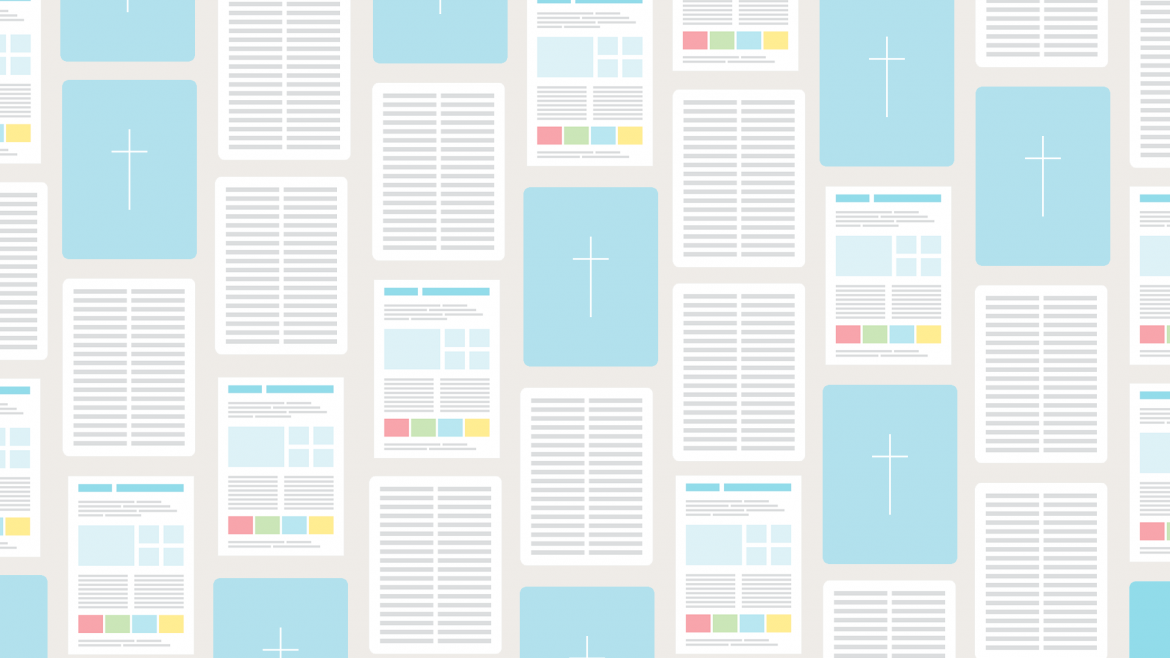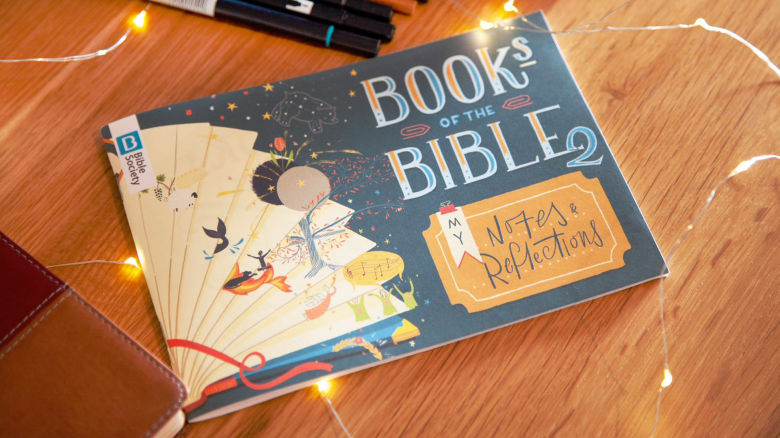This book appears to fall into three sections. The first (chapters 1–39) contains a large number of messages describing the judgement that will fall on the people of Judah unless they change their ways. This judgement is shot through with some beautiful passages of hope and promised salvation. This first section also contains some narrative sections, especially chapters 36–39 which are an exact copy of 1 Kings 18.13–20.19. The second section (40–55) is based almost entirely around the comfort that will come to God’s people. It feels as though it is set after the judgement, promised in the first section, has happened and pledges a new future for God’s people. The third section (56–66) also appears to be set at a different time, probably after God’s people have returned to the land. It contains a mix of warnings about how they should behave alongside comfort and hope for the future.
The people who walked in darkness have seen a great light; those who lived in a land of deep darkness – on them light has shined. (Isaiah 9.2)
Even youths will faint and be weary, and the young will fall exhausted; but those who wait for the Lord shall renew their strength, they shall mount up with wings like eagles, they shall run and not be weary, they shall walk and not faint. (Isaiah 40.30–31)
The spirit of the Lord God is upon me, because the Lord has anointed me; he has sent me to bring good news to the oppressed, to bind up the brokenhearted, to proclaim liberty to the captives, and release to the prisoners; to proclaim the year of the Lord's favour, and the day of vengeance of our God; to comfort all who mourn; to provide for those who mourn in Zion – to give them a garland instead of ashes, the oil of gladness instead of mourning, the mantle of praise instead of a faint spirit. They will be called oaks of righteousness, the planting of the Lord, to display his glory. (Isaiah 61.1–3)
There are many, many more!
One tricky element is the way in which Isaiah jumps around from time period to time period. Most scholars would place the first part of Isaiah in the eighth century BC, the second section in the sixth century BC and the third section in the late sixth or early fifth century BC (see below for more on this). As a result it can be a bit difficult to know where you are.
Isaiah prophesied on more than one occasion about someone who was coming to save God’s people. Christians believe this person to be Jesus; Jews do not. The question you need to ask is whether Isaiah’s prophecies refer just to one person or whether they could refer to more than one (in other words, just to Jesus or to Jesus and other characters in history).
Isaiah son of Amoz (not the Amos from the Minor Prophets but someone else) was a prophet in the eighth century BC. The traditional view is that Isaiah wrote the whole book and that 40–55 and 56–66 were prophecies by Isaiah of what would happen in the far future. Many modern scholars, however, think the book began with Isaiah’s prophecies but was added to over time. Indeed 8.16 (‘Bind up the testimony, seal the teaching among my disciples’) implies that Isaiah’s original prophecies are to be kept by his disciples until a future moment. This suggests that Isaiah’s disciples preserved the prophecies and then opened them again as the exile came to an end and added to them, and again when they actually returned from exile.
Isaiah 1.1 states that Isaiah was active during the reigns of Kings Uzziah, Jotham, Ahaz and Hezekiah. This probably locates his prophecies between 740 and 698 BC. Isaiah 6–7 indicates that he was a priest, maybe even a high priest (because he was in the inner courts of the temple, see Isaiah 6.1) and that he was employed by the king as his prophet.
The second half of the eighth century BC was an unsettled time for Israel and Judah. In 745 BC Tiglath-Pileser III seized the Assyrian throne in Nineveh, northern Iraq, in a coup. He strengthened (the already strong) army and began a policy of military subjugation of the Ancient Near East. Israel (the northern Hebrew kingdom) and Judah (the southern kingdom) took different stances. Israel joined with their northern neighbours, Syria, in an attempt to rebel against Assyria. Judah refused to join them. In retaliation Israel and Syria threatened to invade and place a new king on the throne. Ahaz, King of Judah, was petrified and sent to Assyria for help. As a result the Assyrians came and destroyed both Syria and Israel. Much of this drama is recorded in Isaiah 7.
Isaiah 40–55 and 56–66 speak into different times. Chapters 40–55 come, probably, just before Cyrus issued his decree allowing everyone to return home from exile in 538 BC; chapters 56–66 seem to fit best shortly after the people had returned.
The terror and uncertainty of this time is easily seen in the pages of Isaiah 1–39. People were torn between fear at what was going on and certainty that God would save them. Isaiah’s message is that God would always save them but only if they remained faithful to him.
The latter parts of Isaiah portray a very different time. In 40–55 the worst had already happened and the people had adapted to their exile. These chapters are designed to stir hope in them and give them back a vision of how their life could be.
Chapters 56–66 continue this theme but also loop round again to chapters 1–39, reminding those who returned that God would act to help them but expects them to be faithful to him in return.
Amos, Hosea, Micah (1–39), Haggai, Zechariah, 2 Chronicles, Ezra and Nehemiah (40–66)
Prophecy. The book is nearly all prophecy of different kinds and is mostly poetic. The exceptions are a few chapters like 36–39, which are prose history and a few chapters (24–27) often called the Isaiah apocalypse, prophesying doom for Judah.
1.1–39.8 Isaiah, book 1
1.1–12.6 Messages of judgement and hope
13.1–23.18 Oracles of judgement against foreign nations
24.1–27.13 The Isaiah apocalypse
28.1–33.24 Oracles for Judah and Israel
34.1–39.8 A bridge from book 1 to book 2
40.1–55.13 Isaiah, book 2
40.1–31 God’s comfort for his people
41.1–48.22 The new thing God will do for his people
49.1–55.13 The calling of God’s servant
56.1–66.24 Isaiah, book 3
56.1–59.21 An invitation to enter God’s salvation and to live faithfully within it
60.1–62.12 God’s promise of renewal for his people
63.1–66.24 People appeal for God’s mercy and God promises renewal
There will be lots of names you will not know; don’t worry if you can’t place them all. The key ones are given below.
Remember books set in this period refer to two kingdoms in Israel – the northern kingdom, often called Israel or Ephraim, and the southern kingdom, normally called Judah.
Tarshish, Aram, Assyria, Moab, Negeb, Chaldea, Babylon, Bashan, Canaan, Carmel, Damascus, Edom, Ephraim, Euphrates, Galilee, Gibeon, Gomorrah, Haran, Jerusalem, Judah, Lachish, Lebanon, Media, Midian, Moab, Mount Carmel, Mount Seir, Mount Zion, Negeb, Philistia, Ramah, Samaria, Sheba, Sidon, Sodom, Tarshish, Tyre, Zion
Sargon, Amorites, Arameans, Chaldeans, Cyrus, Eliakim, Hezekiah, Hivites, Israel, Levites, Manasseh, Medes, Moabites, Moses, Philistines, Sennacherib
Zion, Altar, burnt offering, Cherubim, Day of the Lord, disciples, idols, priest, Rabshakeh, seraphim (seraphs), Sheol
Isaiah is a book that stresses monotheism (‘I am the Lord and there is no other’) more than any other in the Bible. Look out for this as you read and reflect on why monotheism was so important for Isaiah at this point in history.
Salvation is a theme that runs all the way through the book. What does salvation look like in this book? What are God’s people being saved from? What are they being saved for?
One of the key titles for God in Isaiah is the ‘Holy One of Israel’. Look out for the title and see how else God is described throughout the book.
From chapter 40 onwards, one of the main themes of the book is comfort and hope. Reflect on where you need comfort and hope in your life – do the prophecies of Isaiah have anything to offer you?

Here are 8 handy tips to get your book club up and running.

Here are some ideas to get you started.

Unsure of the meaning of a word or phrase in the Bible? Check our glossary of terms.
Books of the Bible journal: 2nd Edition
Journey through the Bible, one book at a time, with the 2nd edition of our Books of the Bible journal.
